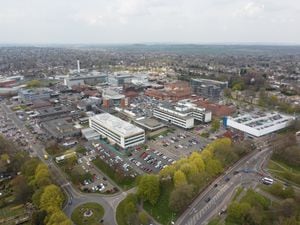Hospital department merger between Walsall and Wolverhampton delayed by Covid-19
Plans to merge Walsall and Wolverhampton hospitals’ urology departments have been hit with delays due to Covid.

Walsall Hospitals NHS Trust interim chief executive David Loughton said the proposal, aimed at slashing huge waiting times, would now not be implemented until the new financial year.
He said staff sickness caused by the pandemic as well as issues with building work required at Wolverhampton meant it was “not the right time” to forge ahead with the plans.
When the merger takes place, teams at New Cross and Walsall Manor Hospitals will come together to form a team of 14 consultants and 10 specialist nurses.
Under the proposal, emergency cases and some elective inpatient care from both areas will be carried out at Wolverhampton’s New Cross.
But day care cases for lesser conditions will move to Walsall Manor instead of being treated in Wolverhampton or Cannock as has been the case for years.
NHS bosses in Wolverhampton said it is believed this will help free up capacity at New Cross and cut the number of people waiting for services.
It had been hoped to send all emergency urological cases to Wolverhampton last month with elective inpatient procedures following in April this year.
The less urgent cases would also have transferred to Walsall in April.
But Mr Loughton told Walsall Council’s social care and health scrutiny committee: “With the pandemic, we have had delays in implementing our proposals and it will not now take place until the first quarter of the new financial year.
“It is complex issues in terms of the building work that is required to make it happen has been delayed.
“In terms of staffing and sickness generally caused by the pandemic, it is not the right time get on and implement it.
“It won’t affect services to users because we have been able to carry on. But obviously urology, the same as a number of other specialities, we are having to prioritise around the elective work.
“The good news is we have cancelled very little in the way of elective work in the first three weeks of this year. That is a credit to everyone involved.”
When asked, he said he believed the merger would be implemented in the next financial year but added caution depending on the situation the hospitals found themselves in.





